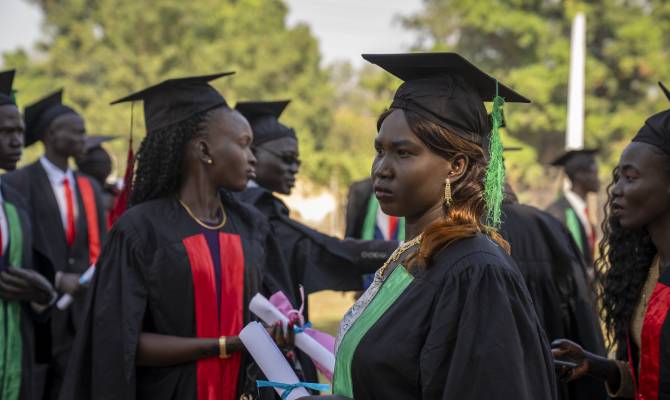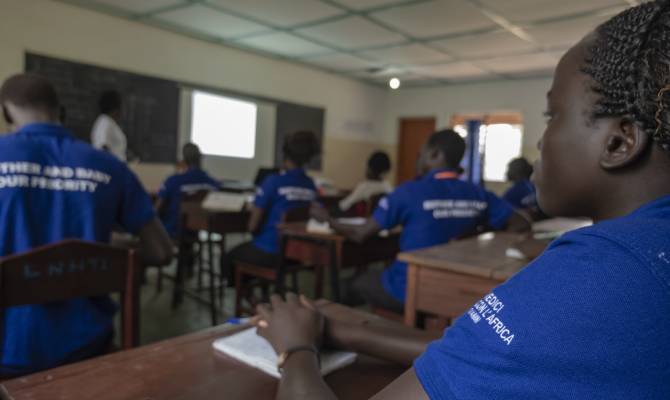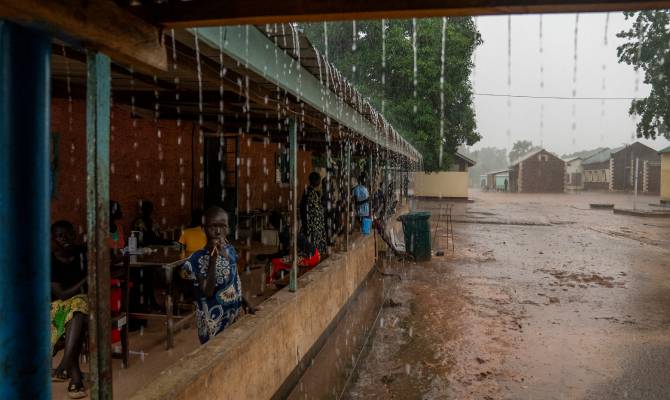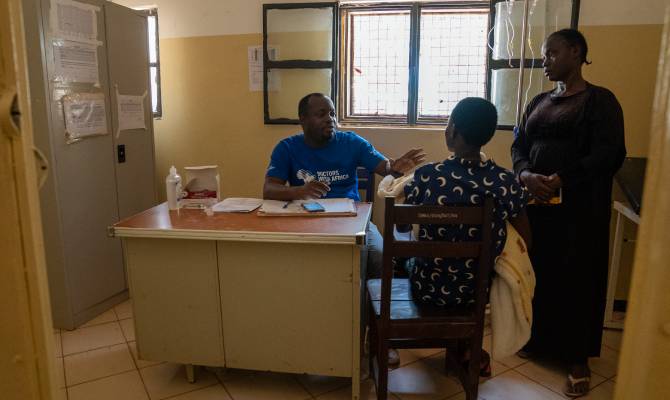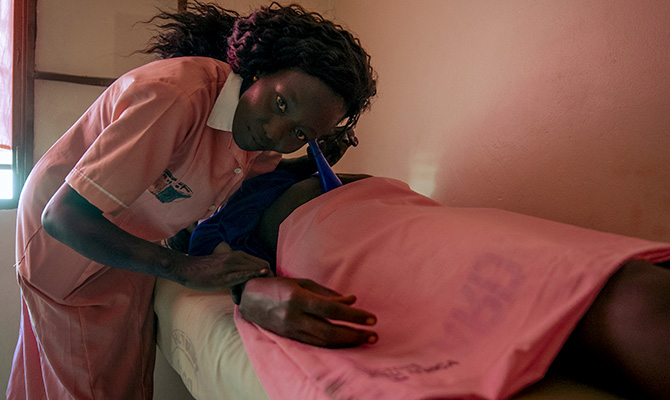South Sudan, the world’s youngest country and one of the poorest in Sub-Saharan Africa, currently has a population of 12 million, the majority of whom are in need of humanitarian aid. According to the World Bank, the country ranks 192nd out of 193 in terms of human development.
The health situation in South Sudan is dire: 1,223 women die in childbirth for every 100,000 live births—shocking figures that are direct consequence of an extremely fragile national health system where the number of qualified healthcare professionals is highly insufficient.
Doctors with Africa CUAMM’s decision to invest in the training of local health personnel in such a fragile country is therefore a crucial step toward initiating real and sustainable progress in the healthcare system.
Today, we support two nursing and midwifery schools in two different states: Lakes State, home to the Rumbek Health Institute and Western Equatoria, where the Lui Midwifery School is located.
Rumbek Health Institute
Active at the State Hospital of Rumbek since 2017, Doctors with Africa CUAMM extended its support to the attached Institute of Health Sciences in the 2020/2021 academic year, particularly in the midwifery and nursing programs.
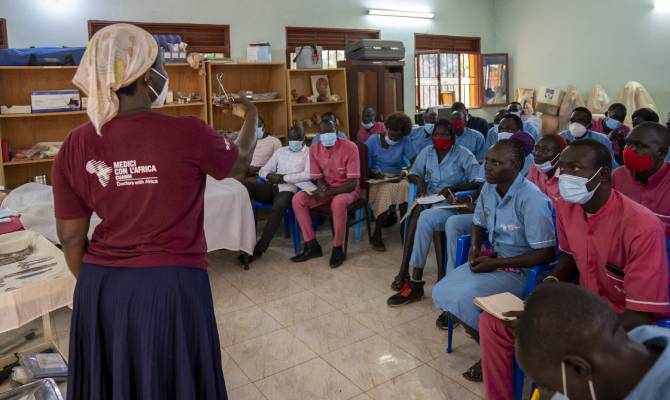
Each year, CUAMM’s support includes:
- Food and accommodation for students in need
- Purchase of teaching and stationery materials for nursing and midwifery courses
- Financial support for the annual salary of tutors and the academic director
- Provision of fuel to ensure electricity for the school
- Supply of medical materials for practical lessons and simulations
Since this initiative began, about fifty students graduate each year from the Rumbek Institute of Health Sciences. These young men and women, equipped with a diploma and vocational training, will be able to work on the front lines to improve the health services and systems of their country, becoming agents of change themselves.
“Mine is not just a profession: being a midwife means welcoming life into your hands and always being at the service of women, to promote their well-being. In our culture, there are taboos to overcome — giving birth in a hospital is one of them. Today, I support women in the delicate moment of childbirth, but ensuring their health every day, in every stage of life, remains my mission.” Martha Mochmetin, midwife graduated from the Institute of Health Sciences in Rumbek.
The institute is located in Rumbek Centre County, in the town of Rumbek, the capital of Lakes State. The adjacent hospital, where students carry out their practical training, is a key referral center in the area. In 2023 alone, over 14,300 patients were admitted to the Pediatrics and Maternity wards (8,918 in Pediatrics, 5,399 in Maternity), 3,414 births were attended (including 120 cesarean sections), and 17,690 outpatient visits were provided at the OPD.
Lui Midwifery School
The Lui Midwifery School is located in Mundri East County, Western Equatoria.
Supported by CUAMM since 2014, the school is attached to the Lui Hospital, a facility serving a population of around 170,000 people.
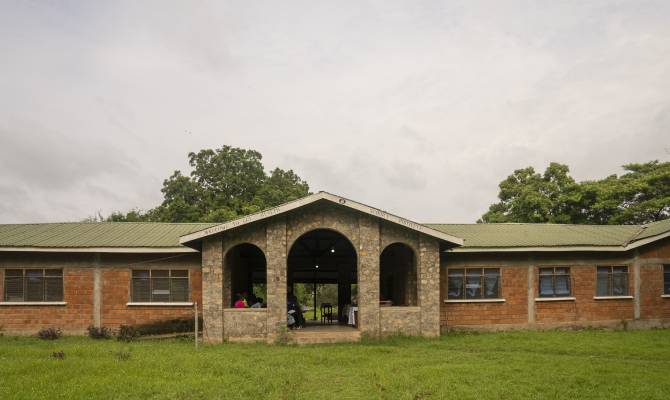 Students attend theoretical classes, study in the library, and carry out practical activities in the hospital wards under the constant guidance of two tutors and the headmistress—personnel specifically recruited by CUAMM to ensure the proper implementation of the ministry’s curriculum.
Students attend theoretical classes, study in the library, and carry out practical activities in the hospital wards under the constant guidance of two tutors and the headmistress—personnel specifically recruited by CUAMM to ensure the proper implementation of the ministry’s curriculum.
“Having the opportunity to do clinical practice in a hospital is a real privilege for students. Everything we see in class and read in textbooks can be applied in real situations—whether by observing clinical procedures or by taking part directly.” Judith Abwol, midwife and tutor at the Lui Midwifery School.
The fact that the Lui School is linked to a functioning hospital offers students an ideal environment for continuous learning—something far from common in South Sudan. In addition to practicing in this hospital, students can also gain field experience in peripheral health units and within local communities.
The school includes several buildings: a classroom facility, a dining hall with kitchens, two dormitories, two staff houses, a services area, and a recreational space. The ability for students to live on campus allows many of them to attend classes and continue their studies without major logistical difficulties. CUAMM’s support covers essential living expenses, as well as hygiene kits, school supplies, and all the materials needed for lessons: from mannequins to consumables, from textbooks to whiteboards.

